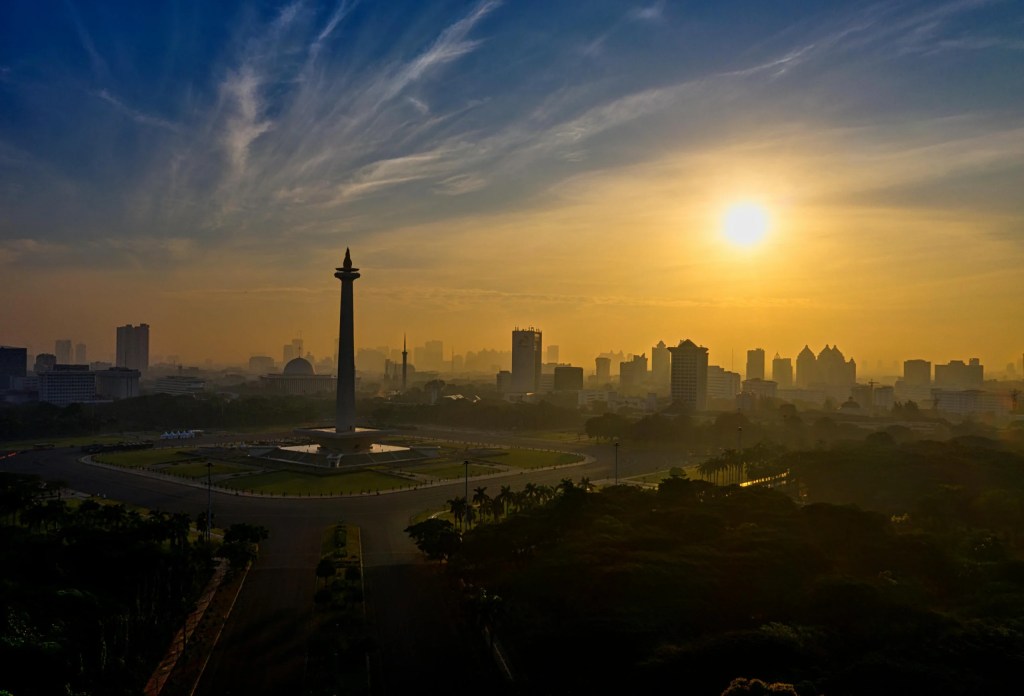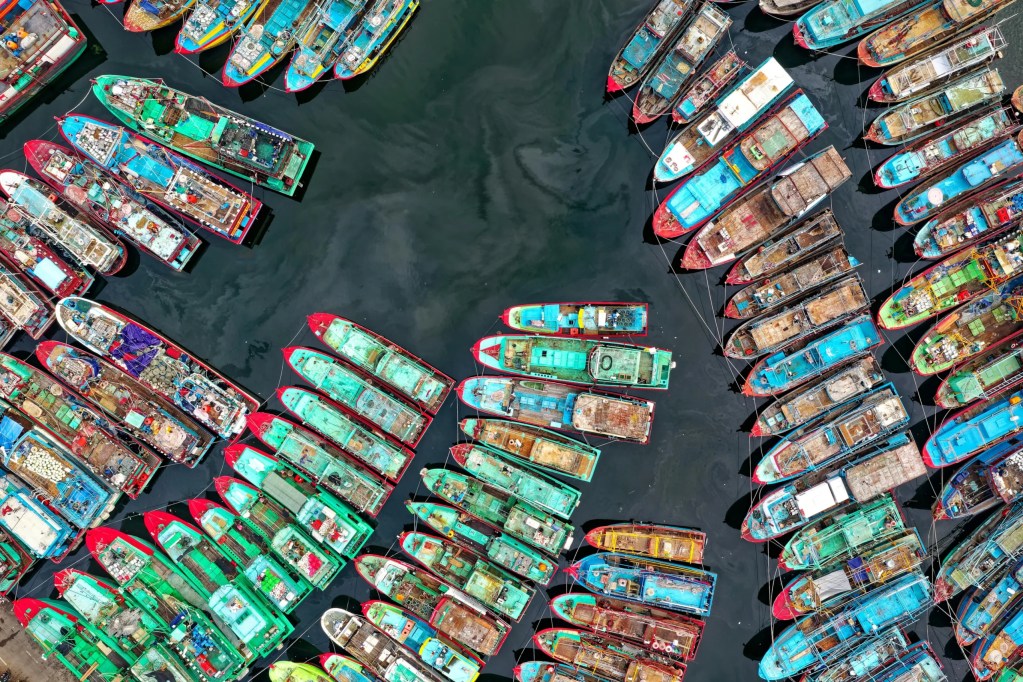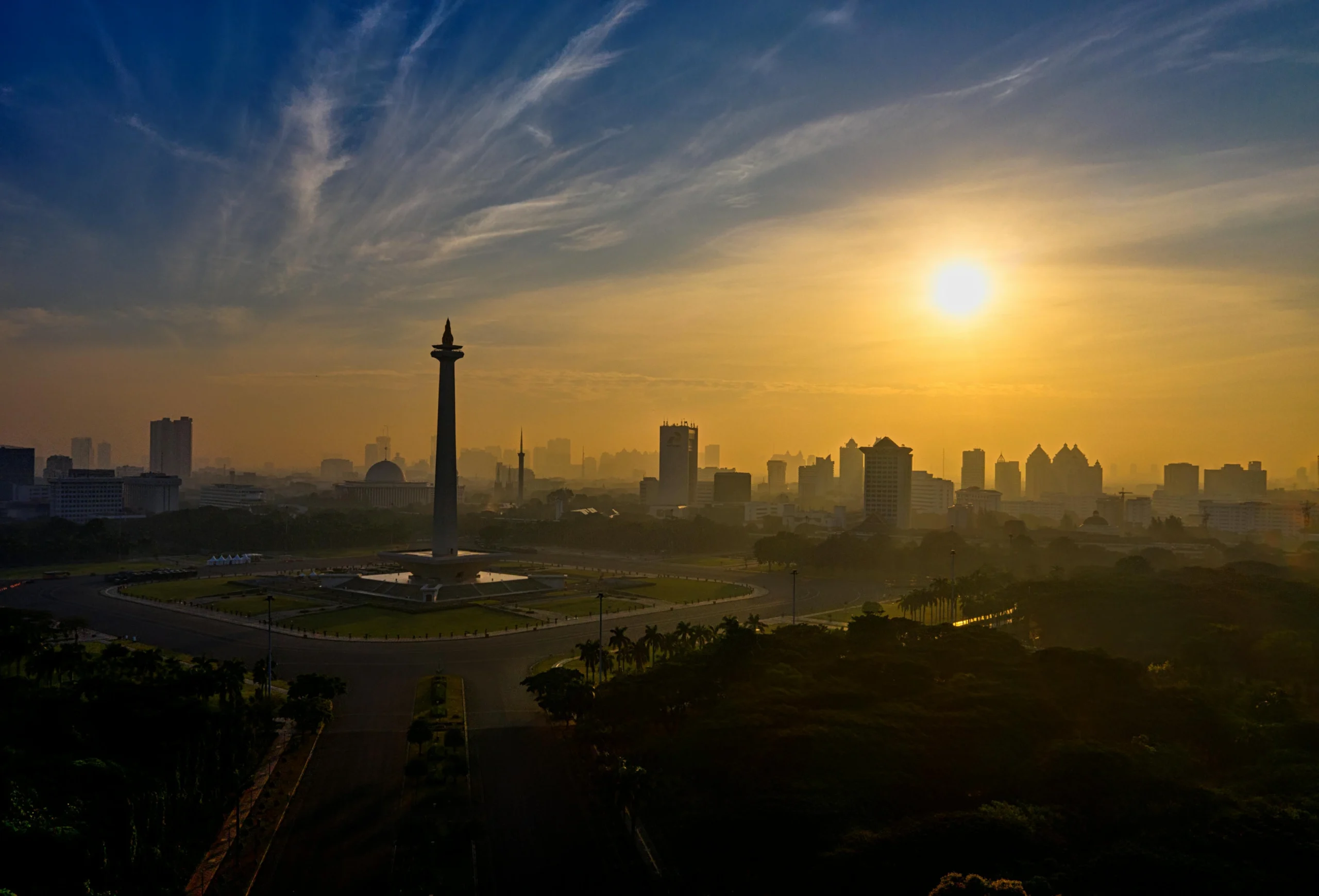This article is apart of our weekly series associated with the The Global Subsidiary Index. The series is designed to help businesses identify the best countries for establishing a subsidiary based on key operational factors. GEOS provides a data-driven ranking of jurisdictions worldwide, assessing across 40+ criteria to bring you insights into global expansion opportunities.
Each country on the index is scored on an overall score out of 100, with each individual criterion out of 5 or 10. Higher scores indicate a more favorable environment for businesses. By leveraging these insights, companies can make informed decisions on where to establish a legal presence.

Business in Indonesia is easy to overlook, but the country offers real potential for global companies. With hundreds of millions of people, it’s one of the largest markets in Asia. The startup scene adds to the momentum, with 917 active startups and eight unicorns, placing Indonesia third in Southeast Asia.
The ecosystem has shifted a bit. It now ranks #45 in the 2025 Global Startup Ecosystem Index, yet innovation is still growing. Fresh ideas come from across the country, where founders focus on blue-economy research, agritech, palm-oil alternatives, and sustainable tourism. Ecotourism has become a global trend, but Indonesia was building it long before it caught on elsewhere.
For expanding teams, the scale, creativity, and emerging talent make Indonesia a strong bet for long-term growth. GEOS helps you navigate the setup process, handle compliance early, and move into the market with confidence.
Why Should You Expand to Indonesia?
Business in Indonesia keeps getting more appealing as the market grows and new opportunities open up across the region. The Indonesian market offers significant growth potential, presenting businesses with opportunities for market expansion and increased market share.
Companies see plenty of room to scale, thanks to the strength and diversity of the country’s economy and ongoing infrastructure development , but it helps to understand the rules and requirements before you enter.
Southeast Asia’s Fastest-Growing Domestic Market
Indonesia gives companies access to Southeast Asia’s biggest domestic market, backed by rising incomes and steady economic growth. The opportunity is strong, but foreign investors must work through high capital requirements, detailed licensing steps, and evolving compliance rules.
The first platform dedicated to streamlining entity setup and management.
A Market Built for Scale
Indonesia, a populous country, earns a GEOS Global Subsidiary Index Score of 56.0, driven by its sheer size and pace of development. The Population Score of 5/5 reflects its more than 270 million people, making it the largest economy in the region.
The market grows quickly and absorbs new products well. Companies benefit from a young population, expanding cities, and deeper internet penetration. You’ll see strong traction in:
- Retail and consumer goods
- Manufacturing and industrial services
- Logistics and digital platforms
- Financial and fintech solutions
- Key sectors that attract foreign investment, driving economic growth
Medium enterprises, especially micro, small, and medium enterprises (MSMEs), play an important role in Indonesia’s manufacturing and services landscape, contributing significantly to employment and industry development. The scale alone creates room for long-term expansion when doing business in Indonesia.
Political Territory & Foreign Direct Investment
A Political Risk Score of 4/5 signals a stable policy direction. Indonesia’s leadership continues to support foreign investment, especially in downstream manufacturing and global supply-chain diversification.
This helps reduce uncertainty. You can expect continuity in pro-investment reforms, incentives for strategic industries, and ongoing efforts to attract multinational projects.
At the same time, these incentives and sectoral policies are guided by government regulation, such as Regulation No. 5/2021 on Risk-Based Business Licensing and other relevant regulation no references that formalize procedures and compliance requirements. Foreign investors should stay aware of:
- Sector-specific ownership limits
- Shifts in natural-resource regulations
- Local governance differences between provinces
The big picture remains steady, even if the details require attention when doing business in Indonesia.
Corporate Tax Landscape
Indonesia’s tax landscape is designed to stay competitive while still funding a growing economy. The Corporate Tax Rate Score of 6/10 reflects its 22% CIT rate, steady policy direction, and a set of incentives that help certain companies lower their tax load.
In particular, tax incentives such as tax holidays and preferential corporate income tax rates are available for foreign investors, especially within special economic zones (SEZs), to promote industrial development and long-term investment.
Public companies enjoy reduced rates, and small enterprises can access partial relief on eligible income. Indonesia has also aligned itself with global standards through OECD Pillar Two, giving multinational groups a clearer view of long-term tax planning. A few structural features stand out:
- No provincial or local income taxes
- Incentives tied to public listings
- Lower burdens for qualifying small enterprises
For most foreign companies, the draw is stability. The rules don’t shift often, and the overall tax approach supports predictable investment planning.
Labor Advantage
A Salary Benchmarking Score of 8/10 shows why companies choose Indonesia for large-scale operations. Labor costs stay low, and the workforce is young and adaptable. This makes Indonesia appealing for:
- Manufacturing plants
- Support and back-office centers
- Regional operations teams
Skill levels differ across provinces, so companies often invest in local training programs. Even with training costs, labor remains cost-efficient compared to regional peers. Other advantages to doing business in Indonesia include:
- Expanding vocational education programs
- Growing tech talent in major cities
- Strong availability for shift-based work
The labor market supports both high-volume and long-term operations.

High Capital Requirements
Indonesia’s largest hurdle for foreign investors is capital. The Share Capital Amount Score of 1/5 reflects strict minimums: foreign-owned PT PMA companies must show IDR 10 billion in paid-up capital.
This creates a meaningful barrier, especially for smaller entrants. It pushes companies to plan thoroughly before incorporation and to confirm the correct KBLI classification, since capital rules sometimes shift by sector.
You may need to consider:
- Whether you qualify for any sector exceptions
- How capital structure affects OSS approval timelines
- Whether to enter via representative office first
The capital rule is one of Indonesia’s most rigid requirements.
Local Expert Insight
BKPM’s OSS (Online Single Submission) system has simplified the approval flow, but it doesn’t remove the technical steps. Investors still lean on local notaries or consultants because KBLI business codes are detailed and sector rules shift often.
Think of OSS as the gateway to doing business in Indonesia. The real navigation happens with local guidance, especially when choosing business classifications, confirming sector eligibility, or meeting capital expectations.
Tax & Regulatory Environment
Indonesia’s tax and regulatory system is steady enough for long-term planning, but it comes with frequent filings and sector-specific rules.
Indonesia’s evolving business regulations, including ongoing reforms and updates, make it essential for companies to stay informed and ensure compliance with regulatory requirements that vary across different industries. The basics are straightforward, yet the details require attention once you start doing business in Indonesia.
Corporate Tax, Double Tax Avoidance Agreements & Accounting
The Tax & Accounting Score of 6/10 captures how the system works in practice. The headline rate may be familiar, but the day-to-day experience comes down to filing rhythms and digital tools.
Compliance runs through DGT Online, Indonesia’s tax portal. It cuts down paperwork and makes filings manageable, even if the interface can feel uneven depending on the type of filing. For companies expanding into Indonesia, the operational strengths are simple:
- Monthly filings follow a clear schedule
- Digital submissions reduce manual steps
- Timing differences and sector adjustments can be handled with local advisors
The system isn’t perfectly streamlined, but it’s consistent. Once workflows are set, most companies settle into a predictable reporting routine.
Compliance & Reporting
The Compliance Reporting Score of 3/5 comes from how frequently companies have to file. Monthly VAT, withholding, and payroll filings create a steady rhythm, and annual tax and corporate governance filings sit on top of that.
Once you set up a reporting workflow, the workload becomes manageable. Most companies either build an internal compliance calendar or lean on a local accounting firm to keep deadlines on track. For PT PMA companies, compliance reports require providing detailed information on operational, financial, and social aspects as part of the process. Expect a recurring cycle for:
- Monthly VAT and withholding filings
- Monthly payroll reporting
- Annual corporate income tax
- Regular company registry updates
It’s a lot to master business in Indonesia, but not overly complex.
Foreign Ownership & UBO Rules
Indonesia scores 7/10 for Openness to Foreign UBOs, and that’s visible in its PT PMA structure. Many sectors allow full foreign ownership, which makes market entry more direct. The tricky part is the sectors with caps. Education, logistics, healthcare, and a few others sit under the Positive Investment List.
Your KBLI business code decides whether a sector is open or restricted. That means your exact business description matters more than in many markets.
Companies also must register their ultimate beneficial owners and keep that information updated. For investors, the main points are clear:
- Most sectors allow full foreign ownership.
- Some sectors have partial caps.
- The KBLI code determines which rules apply.

Government Portals & Digital Systems
Indonesia’s Government Portal Sophistication Score of 2/5 shows a digital environment that’s helpful in parts but still uneven overall. You’ll use DGT Online for tax and OSS for licensing, and both make processes faster. The challenge is that ministries don’t always use the same systems, so digital steps often end with manual follow-up.
Most foreign companies adopt a practical approach: start online, finish with a notary or government office when needed. It’s not fully streamlined, but it’s predictable once you know the flow.
Local Expert Insight
Sector rules shift, and foreign ownership caps vary more than companies expect. That’s why early guidance matters. Local advisors help confirm the correct KBLI code, interpret ownership limits under the Positive Investment List, and avoid surprises during incorporation.
A small review up front often prevents bigger delays later and ensures your structure fits Indonesia’s current rules.
Incorporation & Compliance Essentials
Setting up a PT PMA in Indonesia is doable, but it takes some coordination. A PT PMA is a legal entity and a recognized business entity under Indonesian law, which is important for compliance and foreign investment.
The process is predictable once your structure and KBLI codes are set, yet delays often come from zoning checks and paperwork, and you must clearly define your business activities during incorporation.
Registration Timeline
Most companies finish incorporation in 2-3 months. That window covers document authentication, BKPM approval, OSS processing, and notary work. When your paperwork is clear and your address meets zoning rules, things move much faster.
Resident Director & Governance
Indonesia requires at least one resident director or commissioner, which gives this area a Resident Director Score of 2/5. Many foreign companies start with a nominee director until they hire locally or relocate a team member. A few governance reminders:
- One board member needs a local tax ID.
- Directors and commissioners must appear in the deed of establishment.
- Roles follow Indonesian corporate governance rules, which are stricter than they first appear.
Share Capital Requirements
Capital is one of the toughest parts of entering Indonesia. PT PMAs must show IDR 10 billion in paid-up capital, which is why the Share Capital Amount Score sits at 1/5. That number signals how demanding the requirement is, and BKPM checks it carefully against your five-digit KBLI code and each business location.
Under BKPM Reg 4/2021, only the KBLIs listed in your NIB count toward the requirement. BKPM reviews your authorised capital to confirm compliance, and at least 25% must be issued and fully paid, or IDR 10 billion, whichever is higher.
Sector rules can shift the calculation. Some industries use different KBLI digit levels, while property and industrial activities follow their own formulas. These differences matter because they affect how much capital you must commit at the start.
A few things investors check early to avoid rework:
- Whether their KBLI requires a higher investment
- Whether multiple business locations trigger multiple minimums
Confirming these details before drafting the deed keeps your approval smooth and avoids last-minute changes.
Paperwork & Language
Indonesia still leans on original paperwork for every major setup step. Anything tied to incorporation has to be notarized and translated into Bahasa Indonesia. That usually covers:
- The notarial deed and Deed of Establishment
- Shareholder and board documents
- Passports or corporate resolutions
Nothing moves until the notary signs off, so having clean, complete documents saves you a lot of back-and-forth.
A recent Supreme Court update also helps foreign investors breathe a little easier. Circular Letter No. 3 of 2023 says a contract won’t be cancelled just because it doesn’t have an Indonesian version—unless someone intentionally avoided the translation in bad faith. Judges now look at intent before tossing out an agreement, which makes cross-border work feel a bit more predictable.
The language rule under Article 31 still stands, and this update doesn’t cover contracts with government bodies. Still, it gives private companies more certainty while they handle translations and notarial steps during incorporation.
Risk-Based Business Licensing Requirements
Licensing sits halfway between digital and manual. You’ll secure your NIB through the OSS system, but you must also obtain a taxpayer registration number (NPWP) from the Indonesian Tax Office before starting operations.
Many business permits still need regional approval or sign-off from specific ministries, and in certain sectors, you may be required to submit a statement letter to demonstrate environmental compliance. That’s why licensing earns a 2/5 score.
Sectors that often need extra permits include:
- Manufacturing
- Construction
- Logistics
- Healthcare and education
Foreign-ownership caps also depend on the Positive Investment List, so the exact KBLI code matters, and it is crucial to ensure compliance with all licensing and regulatory requirements.
Registered Address & Zoning
Every PT PMA must list a commercially zoned address. As part of registering property in Indonesia, businesses must undergo a land certificate examination to ensure the property meets all legal requirements for ownership transfer or property registration.
With a Registered Address Score of 4/5, the rules are clear and workable, even if the zoning checks can slow things down. Jakarta and Bali allow virtual offices for select industries, which helps companies start quickly.
Zoning proof is a common source of delay when doing business in Indonesia. If the building’s use classification doesn’t match municipal records, incorporation won’t move ahead.
Local Expert Insight
Even with digital tools like OSS and DGT Online, the most important parts of incorporation still rely on notaries and local verification. Finalizing the Akta Pendirian and Deed of Establishment correctly sets the entire process up for success. Confirming your zoning documents early prevents last-minute surprises that can easily push timelines back.
Workforce & Employment Considerations
Hiring in Indonesia feels straightforward at first, but the details matter once you start building a team. The rules have become more flexible in recent years, yet employer costs, termination steps, and regional enforcement can still shape day-to-day operations.
Understanding how the system works helps you plan your workforce with fewer surprises. It’s also crucial to adapt to Indonesia’s business culture and be aware of cultural differences, as these factors influence communication, decision-making, and overall team dynamics.
Employment Law & Contract Flexibility
Indonesia’s employment rules are easier to work with than they used to be. The Employment Law Complexity Score sits at 6/10, thanks to the Omnibus Law on Job Creation. It opened the door to longer contract terms and more flexible hiring, which helps new entrants scale teams without jumping straight into long-term commitments.
That said, the system is still formal. Documentation needs to be clear when doing business in Indonesia, and companies should expect extra steps when operating outside major hubs like Jakarta or Surabaya.
Benefits & Mandatory Employer Costs
Hiring for your business in Indonesia comes with a few fixed obligations. Employers must contribute to BPJS health and pension programs, and pay THR (the religious holiday bonus) each year. With a Benefits Score of 2/5, these costs aren’t overwhelming, but they do add up for labour-intensive teams. Most firms build these into annual budgeting early so payroll surprises don’t hit later.
Termination Environment
Ending employment requires care. A Too Employee Friendly? Score of 3/5 reflects that terminations still come with severance and usually a mutual-agreement process. The Omnibus Law lowered redundancy costs, but companies should expect negotiations and documentation each time. Clear contracts and well-kept HR files help avoid delays if a role needs to be phased out.
Unions & Worker Voice
Unions remain part of the landscape, especially in manufacturing and state-linked industries. The Union Score of 3/5 shows their presence is moderate but not dominant. In services and tech, unions are far less common, though activism spikes during major policy changes or layoffs.
Foreign companies usually navigate this easily by keeping communication open and involving local businesses and workers early during operational changes.
Local Expert Insight
Advisers note that the Omnibus Law modernised hiring and cut redundancy expenses, but enforcement varies by region. Cities with strong government oversight move smoothly. More rural areas may still follow old habits, so timelines can stretch if paperwork isn’t perfect from day one.

Talent Availability & Salaries
Indonesia offers a wide talent pool, particularly in the digital economy but the depth depends on the roles you’re hiring for. Tech skills are growing, sales teams are easy to build, and overall salary levels stay competitive. The market moves fast, so planning ahead helps. Local businesses play a key role in developing the talent pool and shaping hiring practices in Indonesia.
Tech & Developer Talent
Senior engineers are still hard to find. That’s why the Developer Talent Score is 2/5. Most talent sits at the junior and mid levels, supported by a steady stream of graduates from local universities. Companies often invest in extra training or blend Jakarta hires with regional teams to balance cost and capability. A few points to keep in mind when expanding your business in Indonesia:
- Demand in Jakarta pushes salaries up quickly.
- Cities like Bandung and Surabaya offer cheaper, reliable talent.
- Deep-tech roles, particularly AI, data, and cybersecurity, remain in short supply.
Sales & Marketing Talent
Sales and marketing hiring is much easier. The Sales & Marketing Talent Score of 5/5 reflects long-standing strength in FMCG, retail, and e-commerce. Local teams understand the market well and usually scale fast without needing heavy onboarding.
Language Expectations
Bahasa Indonesia is required for contracts, HR policies, and filings. The Language Score of 2/5 signals the gap you may feel if your leadership team works primarily in English. English skills are strongest in tech, consulting, and multinational companies.
Salary Benchmarks
Indonesia stays cost-friendly for most roles. The Salary Benchmarking Score of 8/10 shows how far hiring budgets can stretch, even with tech wages rising.
To budget for your business in Indonesia, keep this in mind:
- Average salary: approximately IDR 3,094,818
- Jakarta sits higher than the national average.
- Raises often come every 16–18 months, especially in high-demand roles.
- Minimum wages shift by province and update yearly.
- The country remains cheaper than Thailand or Malaysia for similar talent.
Local Expert Insight
Tech salaries spike in Jakarta, but strong talent in Bandung and Surabaya keeps costs manageable. Many companies now split teams across cities to get the best balance of quality and budget.
Financial & Banking Considerations
Opening a bank account in Indonesia often takes longer than new entrants expect. The KYC process is strict, especially for foreign-owned PT PMAs, and most banks still require in-person verification. Even with digital improvements, onboarding isn’t fully streamlined.
Banking Setup & KYC Requirements
Banks follow tight AML and KYC rules under Indonesia’s FATF-aligned framework. Most foreign-owned entities must complete identity checks for directors and shareholders, with banks requiring notarized documents and physical presence.
- KYC Requirements Score: 2/5 — Identity checks are detailed and often include notarized passports, corporate documents, and in-person verification.
- Banks like BCA and Mandiri now support digital pre-screening, but final approval still happens face-to-face.
- Financial institutions must follow AML laws under Law No. 8/2010, POJK regulations, and PPATK reporting rules.
The World Bank’s Doing Business Indonesia report backs this up. Banks take corporate identity checks seriously and view foreign UBOs as higher-risk, which usually means longer onboarding timelines.
Account Opening Timelines & Operational Costs
Corporate bank accounts tend to open 4-6 weeks after incorporation, partly due to KYC checks and AML clearance.
- Expense Management Score: 3/5 — Account opening can delay early payments and vendor onboarding.
- Indonesia’s moderate cost of living helps control early operational expenses, earning an Average Budget Score of 6/10.
The Doing Business report also notes that Indonesian companies typically complete company registration in roughly 10 days in Jakarta, but banking steps remain outside this window and often take longer, which matches current market experience.
Why It Matters for New Entrants
Indonesia’s AML framework is now FATF-aligned, so banks must apply a strict risk-based approach. This affects foreign-owned entities the most because they undergo enhanced due diligence checks and more document requests. When doing business in Indonesia, expect banks to verify:
- Shareholder structures
- Source of funds
- Beneficial owners
- Director identity
- Notarized and translated documents
And under PPATK rules, banks must report suspicious transactions and cash transactions over IDR 500,000,000 (≈ USD 32K).
Local Expert Insight
Digital onboarding makes the first step smoother, but foreign investors should still plan for in-person verification before an account becomes fully active. Choosing banks with stronger expat and corporate teams — such as BCA, Mandiri, or HSBC — cuts down on delays.
Immigration & Work Permits
Immigration rules in Indonesia are workable, but they’re not fast. Companies must sponsor every foreign hire, which is why the Immigration Complexity Score sits at 2/5. The main challenge is sequencing the steps correctly.
Hiring Foreign Employees
Your business in Indonesia can’t hire expatriates without government approval. Every employer must secure:
- RPTKA: The foreign manpower plan approved by the Ministry of Manpower
- Notification: The actual work authorization that replaced the old IMTA
These steps must be cleared before the employee applies for any visa. Missing paperwork often delays onboarding by 1–2 months.
Work Visa Process
Once the notification is issued, the employee applies for a VITAS abroad. After entering Indonesia, they convert it into a KITAS/ITAS, which becomes their legal basis to work and stay. The process is predictable but takes coordination across ministries.
Business Visitors
Short visits for meetings or negotiations don’t require a work permit. Companies can rely on:
- Single-Entry Business Visa (60 days, extendable)
- Multiple-Entry Business Visa (one year, 60-day stays per visit)
These visas don’t allow hands-on work or income from Indonesian sources.
What Employers Must Prepare
Your Indonesian entity acts as the full sponsor. When doing business in Indonesia, it’s wise to prepare:
- Corporate documents (NIB, tax ID, deed of establishment)
- Workforce reports for the RPTKA
- A local address for the employee’s KITAS registration
Job titles must match the RPTKA exactly, or immigration will reject the application.
Local Expert Insight
The biggest delays happen when the RPTKA job description doesn’t match Indonesia’s approved list of foreign-eligible roles, especially in the context of double tax avoidance agreements . Companies expanding into Indonesia often partner with local advisors early, since clean paperwork shortens the process considerably.
Special Economic Zones
Indonesia’s Special Economic Zones (SEZs) play a key role in attracting foreign investors and supporting economic growth. There are 20 SEZs across the archipelago, each offering a strong set of incentives for companies entering the market. Their locations tap into Indonesia’s natural resources, growing middle class, and position as a gateway to Southeast Asia.
SEZs offer a business-friendly setup with solid infrastructure, risk-based licensing (PBBR), and customs exemptions that make trade easier. Many zones also support industry clusters, such as Batam Island’s digital park for tech businesses or Central Java’s automotive export hub, which helps businesses collaborate and scale faster.
Tax Holidays and Fiscal Incentives
To further attract foreign direct investment and boost the country’s economy, the Indonesian government has introduced a range of tax holidays and investment incentives. These measures are designed to create a favorable investment climate and encourage foreign direct investment in high-priority sectors.
Sector-Specific Benefits
Indonesia’s commitment to ongoing business reforms is evident in its sector-specific incentives, which are tailored to attract foreign direct investment in industries with high growth potential. The implementation of Law No. 6 of 2023 has simplified business licensing and improved the overall business environment, making it easier for foreign companies to establish and expand their operations.
Unique Indonesia Expansion Insights
Doing business in Indonesia, into Indonesia comes with both opportunities and some practical hurdles. The market is huge and growing, but the rules require careful handling.
Nominee Director Requirement
Foreign-owned PT PMAs must appoint at least one resident director. This person keeps the entity compliant, maintains local residency status, and often acts as a bank signatory. Most investors use a nominee solution because the role involves day-to-day administrative responsibilities that require someone based in Indonesia.
High Capital Threshold
Since PT PMAs must show IDR 10 billion in paid-in capital, regulators check these numbers closely. The amount ties directly to the KBLI business code, so companies often confirm their capital expectations before drafting the notarial deed. It helps prevent delays later in the OSS licensing process.
Omnibus Law
With the Omnibus Law overhauling employment, licensing, and environmental rules, many approvals now move faster in major cities. Companies in manufacturing, logistics, or tech usually get smoother processing in Jakarta, while regional offices may still face older bureaucratic habits.
Language Requirements
Indonesia requires all corporate documents — deeds, employment agreements, board resolutions, and filings — to be in Bahasa Indonesia when doing business in Indonesia. English versions are helpful for internal use, but the Indonesian version is the only one with legal standing. Misalignment can invalidate contracts, so companies usually translate and notarize everything upfront.
How GEOS Simplifies Your Expansion into Indonesia
GEOS handles the steps that usually slow foreign companies down when doing business in Indonesia. The team manages nominee director appointments, capital registration, notarial deeds, and all BKPM licensing, so your entity stays compliant at both the national and provincial levels.
AI-Powered Global Expansion Support
Geovanna acts as your built-in assistant for Indonesia. She manages entity formation, tracks regulatory filings, and keeps all capital documentation ready for BKPM and OSS reviews.
Is Indonesia the Right Fit for Your Business?
Indonesia earns a GEOS Global Subsidiary Index Score of 56.0, making it a strong pick for companies planning long-term, scalable growth. The bureaucracy can feel heavy at times, but the market size, labor affordability, and policy direction create real advantages. With the right support, Indonesia becomes one of Asia’s most rewarding expansion destinations.
📩 Contact GEOS for a customized expansion strategy.
This article does not constitute legal advice.




